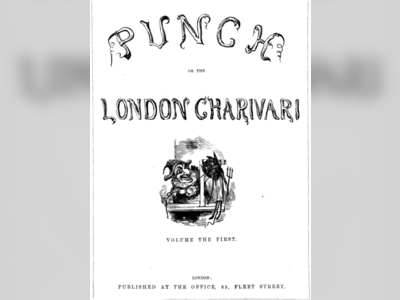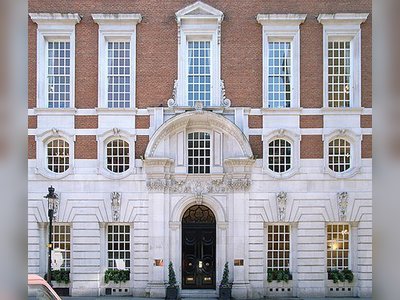British Heritage
Remember, Cherish, Learn.
beta
The Spectator
Contribution of The Spectator to British Heritage.
The Spectator, a venerable weekly British magazine, holds a significant place in British heritage due to its long and storied history as a publication focused on politics, culture, and current affairs. Founded in July 1828 by Scottish reformer Robert Stephen Rintoul, The Spectator quickly became one of the most influential journals of its time. Rintoul deliberately revived the title from a previous publication by Addison & Steele, aiming to create a "perfect newspaper." With a liberal-radical agenda in its early years, The Spectator was respected for its non-partisanship in both political and cultural criticism.
Throughout its existence, The Spectator played a role in shaping British society and politics. Notably, it championed wide-reaching parliamentary reform and actively supported the passage of the Great Reform Act of 1832, a pivotal moment in British political history. Its vocal opposition to the First Opium War in 1839-1842 and the war's questionable aims demonstrated the magazine's commitment to social justice and ethical journalism.
The Spectator has also played a role in the careers of prominent British politicians. Editorship of the magazine has been seen as a stepping stone to high office in the Conservative Party, with notable past editors including Boris Johnson, Ian Gilmour, Iain Macleod, and Nigel Lawson. The magazine's political conservatism has been a defining characteristic, and its influence on political discourse cannot be understated.
Beyond politics, The Spectator has contributed significantly to British cultural heritage by providing insightful commentary on literature, music, opera, film, and television. It has consistently featured arts pages with reviews and analysis, fostering a cultural conversation that has enriched British intellectual life.
The magazine's legacy extends beyond the United Kingdom, with international editions published in Australia and the United States. These editions have furthered its influence and global reach, solidifying The Spectator's position as a leading voice in political and cultural discourse.
In 2020, The Spectator achieved two significant milestones, becoming both the longest-lived current affairs magazine in history and the first magazine ever to publish 10,000 issues. These achievements underscore the enduring impact and relevance of The Spectator in British heritage and the broader world of journalism.
Since its inception in 1828, The Spectator has witnessed numerous changes in ownership, editorship, and political climate, yet it has consistently remained at the forefront of British journalism. Owned by Frederick Barclay through Press Holdings, The Spectator's principal subjects are politics and culture, and it has maintained a politically conservative stance throughout its history.
One of The Spectator's defining features has been its editor and proprietor often being the same person. Founder Robert Stephen Rintoul set this tradition in motion, exerting "absolute power" over the magazine's content, a practice that has endured for generations. This autonomy allowed the editor to shape the publication's political and cultural agenda.
Over the years, The Spectator has provided a platform for influential writers and journalists. Notable among them was Richard Holt Hutton, whose reviews and critiques earned him the reputation of being "the first critic of the nineteenth century." Additionally, George Brimley's scathing review of Charles Dickens's "Bleak House" exemplified the magazine's critical acumen.
In times of political turmoil and social change, The Spectator has fearlessly taken a stance on key issues, often at the risk of losing readership. The magazine's opposition to the First Opium War, support for wide-reaching parliamentary reform, and its campaign for the decriminalization of homosexuality exemplify its commitment to progressive values and advocacy for human rights.
Despite facing challenges, such as declining readership and financial pressures, The Spectator has managed to adapt and endure, emerging as one of the most influential and respected publications in Britain and beyond. Its ability to spark debates, challenge prevailing opinions, and shape public discourse has solidified its place in British heritage as a beacon of intellectual thought and free expression.
Today, The Spectator continues to provide valuable insights into politics, culture, and current affairs, contributing to the ongoing evolution of British society and heritage. With a rich history spanning over two centuries, it remains a cornerstone of British journalism, a testament to the enduring power of the written word in shaping public opinion and influencing the course of history.
Throughout its existence, The Spectator played a role in shaping British society and politics. Notably, it championed wide-reaching parliamentary reform and actively supported the passage of the Great Reform Act of 1832, a pivotal moment in British political history. Its vocal opposition to the First Opium War in 1839-1842 and the war's questionable aims demonstrated the magazine's commitment to social justice and ethical journalism.
The Spectator has also played a role in the careers of prominent British politicians. Editorship of the magazine has been seen as a stepping stone to high office in the Conservative Party, with notable past editors including Boris Johnson, Ian Gilmour, Iain Macleod, and Nigel Lawson. The magazine's political conservatism has been a defining characteristic, and its influence on political discourse cannot be understated.
Beyond politics, The Spectator has contributed significantly to British cultural heritage by providing insightful commentary on literature, music, opera, film, and television. It has consistently featured arts pages with reviews and analysis, fostering a cultural conversation that has enriched British intellectual life.
The magazine's legacy extends beyond the United Kingdom, with international editions published in Australia and the United States. These editions have furthered its influence and global reach, solidifying The Spectator's position as a leading voice in political and cultural discourse.
In 2020, The Spectator achieved two significant milestones, becoming both the longest-lived current affairs magazine in history and the first magazine ever to publish 10,000 issues. These achievements underscore the enduring impact and relevance of The Spectator in British heritage and the broader world of journalism.
Success and General Information
Since its inception in 1828, The Spectator has witnessed numerous changes in ownership, editorship, and political climate, yet it has consistently remained at the forefront of British journalism. Owned by Frederick Barclay through Press Holdings, The Spectator's principal subjects are politics and culture, and it has maintained a politically conservative stance throughout its history.
One of The Spectator's defining features has been its editor and proprietor often being the same person. Founder Robert Stephen Rintoul set this tradition in motion, exerting "absolute power" over the magazine's content, a practice that has endured for generations. This autonomy allowed the editor to shape the publication's political and cultural agenda.
Over the years, The Spectator has provided a platform for influential writers and journalists. Notable among them was Richard Holt Hutton, whose reviews and critiques earned him the reputation of being "the first critic of the nineteenth century." Additionally, George Brimley's scathing review of Charles Dickens's "Bleak House" exemplified the magazine's critical acumen.
In times of political turmoil and social change, The Spectator has fearlessly taken a stance on key issues, often at the risk of losing readership. The magazine's opposition to the First Opium War, support for wide-reaching parliamentary reform, and its campaign for the decriminalization of homosexuality exemplify its commitment to progressive values and advocacy for human rights.
Despite facing challenges, such as declining readership and financial pressures, The Spectator has managed to adapt and endure, emerging as one of the most influential and respected publications in Britain and beyond. Its ability to spark debates, challenge prevailing opinions, and shape public discourse has solidified its place in British heritage as a beacon of intellectual thought and free expression.
Today, The Spectator continues to provide valuable insights into politics, culture, and current affairs, contributing to the ongoing evolution of British society and heritage. With a rich history spanning over two centuries, it remains a cornerstone of British journalism, a testament to the enduring power of the written word in shaping public opinion and influencing the course of history.
- The Spectatoren.wikipedia.org






